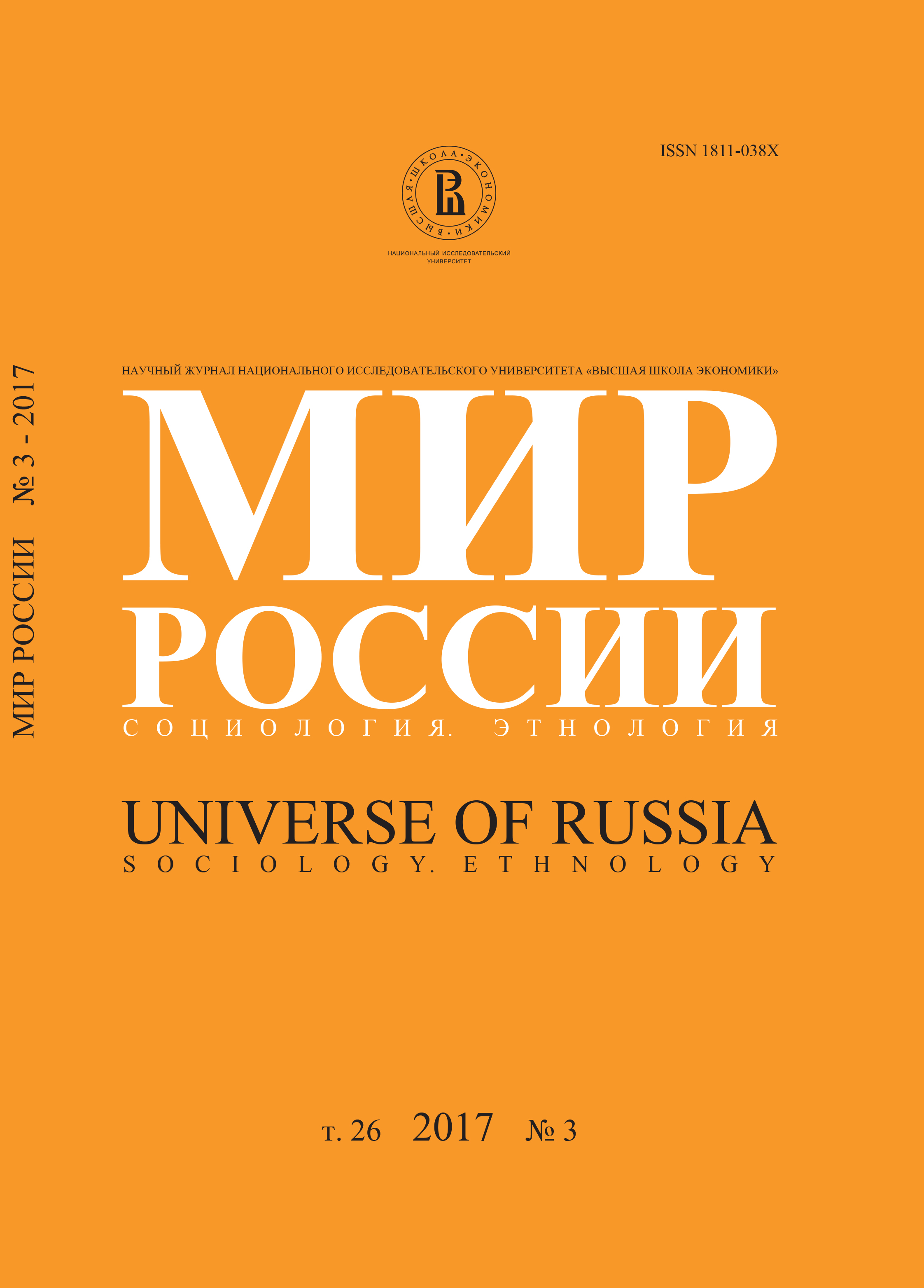The Global Education Programme in the Era of the Knowledge Based Economy: Context and Implications
Abstract
Marina Kovalenko — Senior Lecturer in English, Department of English for the Humanities, National Research University Higher School of Economics. Address: 3, Bolshoj Trekhsvyatitel’skij lane, Moscow, 123022, Russian Federation. E-mail: mkovalenko@hse.ru
Citation: Kovalenko M. (2017) The Global Education Programme in the Era of the Knowledge Based Economy: Context and Implications. Mir Rossii, vol. 26, no 3, pp. 117–141. DOI: 10.17323/1811-038Х-2017-26-3-117-141
The Global Education Programme (GEP) is an innovative government funded programme that offers Russian citizens the opportunity to study full-time at leading foreign higher education institutions and requires them to get employment in Russia in accordance with the qualification gained for a minimum of three years. Its purpose is to introduce the best international experiences and to apply them in Russia. Both the humanistic aims of GEP to provide access, equity, and social justice to high academic achievers and the number of obstacles to the long-term goals of modernization are core elements of this discussion. “5-100-2020”, an umbrella programme focused on both internal and international development, is discussed. Striving for better positions in top world rankings is viewed from a wide range of perspectives. The article assesses the extent to which GEP fits with the concepts and theories of internationalization, explores GEP as a policy initiative for economic modernization, and identifies the main mismatches between the ambitions and challenges of GEP. The political and cultural contexts are taken into consideration and intercultural comparisons are made. GEP participant survey data and their views on the programme reflecting their professional experiences are analysed.
The first steps of GEP including grant awards to 718 GEP participants were not fully implemented. According to 8 December 2016 data, the number of participants was 413 which is less than 58% of the planned number. The funding process has been officially prolonged until 2025. The completion of GEP will be officially announced only after the fulfilment of the employment commitments by all the participants who have successfully completed their studies abroad.






